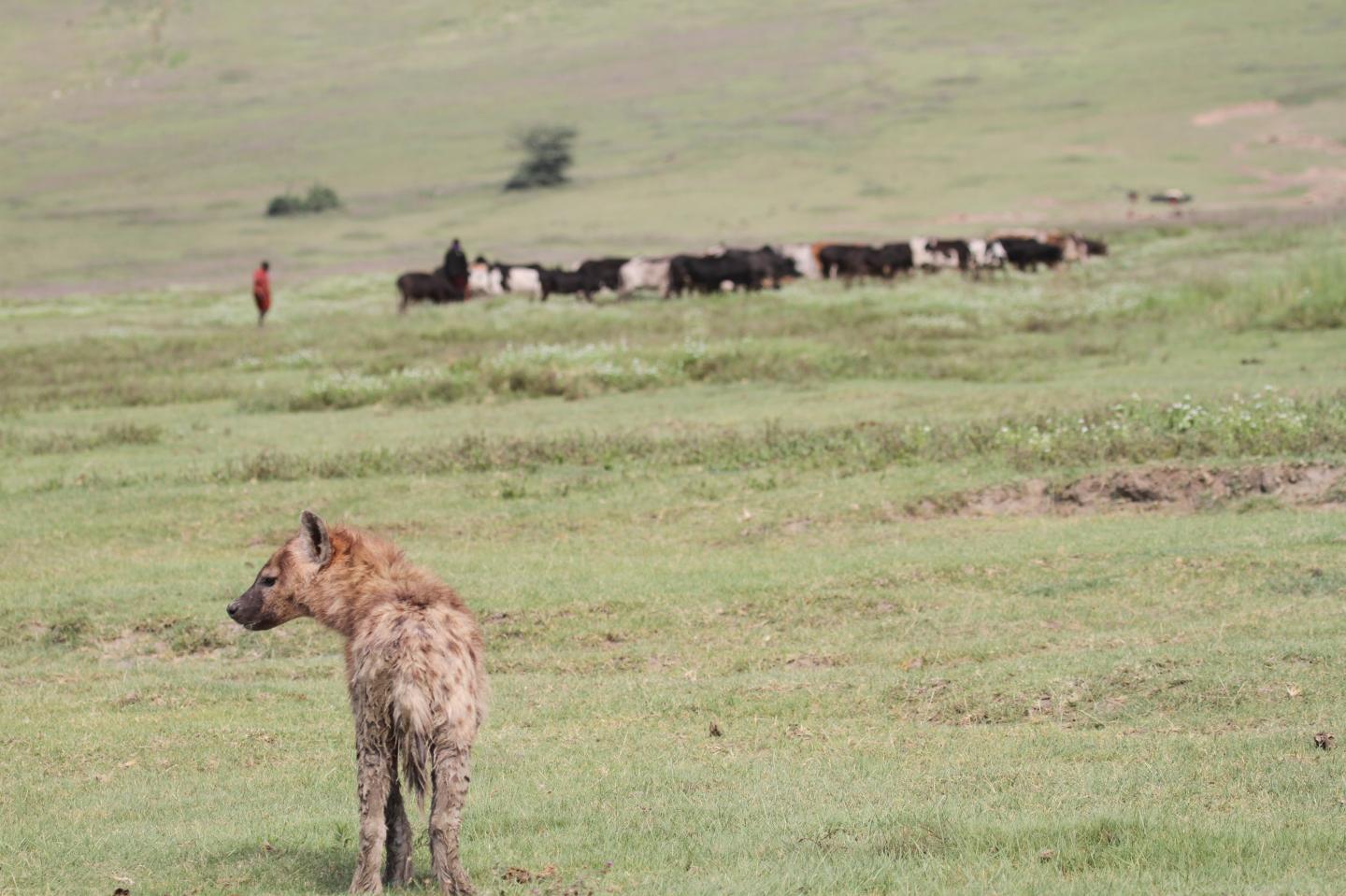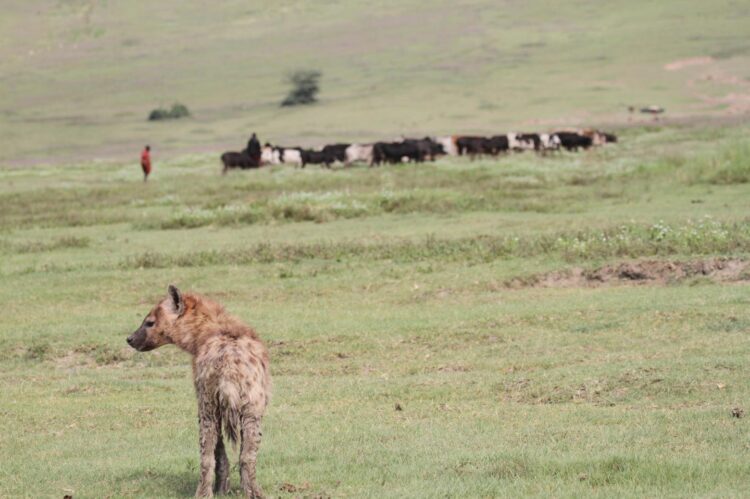
Credit: Photo: Oliver Höner/Leibniz-IZW
Emotions towards and cultural importance of large carnivores are better predictors of the acceptance of management strategies by local communities than the extent of livestock depredation. This is the result of a new interdisciplinary investigation led by scientists from the Leibniz Institute for Zoo and Wildlife Research (Leibniz-IZW). They conducted 100 questionnaires with Maasai pastoralists in Ngorongoro Conservation Area, Tanzania, focusing on three large carnivore species (spotted hyenas, lions and leopards) and three management strategies (no action, relocation and lethal control). An emphasis on socio-cultural variables is key to understanding human-carnivore relationships and challenges the traditional focus on livestock depredation in human-carnivore conflict research, the scientists conclude. The findings are published in the open access scientific journal “Frontiers in Conservation Science“.
Support from local communities is required to implement successful wildlife management strategies. A key challenge is that the relationship between local communities with large carnivores are complex: on the one hand, the animals are often considered charismatic, culturally important and emotionally evocative. Positive emotions such as joy have been suggested to predict the success of conservation-oriented management strategies. This is also true for the cultural importance of large carnivores. On the other hand, negative emotions such as fear and disgust as well as negative experiences such as livestock depredation – the traditional focus of human-carnivore conflict research – have been suggested to predict the acceptance of invasive measures such as relocation and lethal control. Past research looked at these factors separately, but did not compare them at the same time to see which is the best predictor – and which should therefore be prioritised by wildlife managers.
“We assessed for the first time several factors simultaneously for several carnivores to determine which factor best predicted the acceptance of commonly applied management strategies”, explains first author Arjun Dheer (Leibniz-IZW). The investigation was conducted in the Ngorongoro Conservation Area (NCA) in Tanzania. “The NCA is a protected area which includes both wildlife conservation and human livelihoods in its management plan”, adds Dheer. The investigation focused on three species: spotted hyena (Crocuta crocuta), lion (Panthera leo) and leopard (Panthera pardus). “The species we chose are the main predators of livestock in the region and past research in other areas showed that people view them in different ways”, explains Dr Oliver Höner (Leibniz-IZW), co-senior author of the paper. The investigation focused on the acceptance of no action (continued protection of the carnivores), relocation and lethal control. Respondents rated the emotions of joy, disgust and fear and the cultural importance of each carnivore species. They were also asked to report on how many cattle, goats, sheep and donkeys they lost to the carnivores over the past three years.
The main result is that emotions and cultural importance were stronger predictors for the acceptance of specific management strategies than the extent of livestock depredation. “Amongst the emotions, joy was the strongest predictor; it was linked to a preference for no action and a negative assessment of relocation and lethal control. Cultural importance showed a trend similar to joy”, explains Dheer. Overall, respondents favoured no action towards the carnivores and rejected relocation and lethal control. “It goes to show how scientists might be barking up the wrong tree by focusing on livestock depredation and negative emotions”, explains co-senior author Dr Tanja Straka (Leibniz-IZW & TU Berlin).
“Our findings underpin the role of emotions and cognitions in human-wildlife relationships”, concludes Dheer. The traditional emphasis on livestock depredation as the primary issue of concern when harnessing human tolerance of large carnivores is called into question, the authors summarise: it is apparent that emotions and cultural importance need to be considered, even across species that have different reputations. Multi-pronged approaches that combine emotions and cultural factors with the close involvement of local communities can help pave the way for continued human-carnivore coexistence.
###
__ Publication
Dheer A, Davidian E, Jacobs MH, Ndorosa J, Straka TM†, Höner OP† (2021): Emotions and cultural importance predict the acceptance of large carnivore management strategies by Maasai pastoralists. Frontiers in Conservation Science. DOI: 10.3389/fcosc.2021.691975.
†co-senior authors
__ Contact
Leibniz Institute for Zoo and Wildlife Research (IZW) in the Forschungsverbund Berlin e.V.
Alfred-Kowalke-Str. 17, 10315 Berlin, Germany
http://www.
_ Arjun Dheer (English)
PhD student in the Department of Evolutionary Ecology
phone: +49 30 5168-331
email: [email protected]
_ Dr Oliver P. Höner (English and German)
Scientist in the Department of Evolutionary Ecology
phone: +49 30 5168-516
email: [email protected]
Technische Universität Berlin, Institut für Ökologie
Rothenburgstraße 12, 12165 Berlin, Germany
_ Dr Tanja Straka
Postdoctoral researcher at the chair of Climatology
email: [email protected]
Media Contact
Arjun Dheer
[email protected]
Related Journal Article
http://dx.





